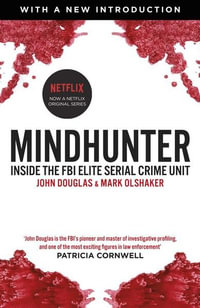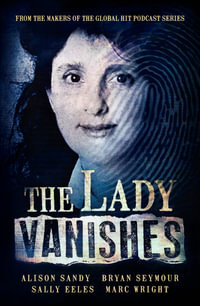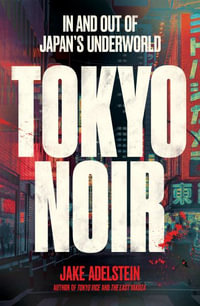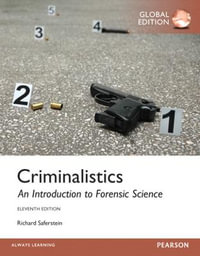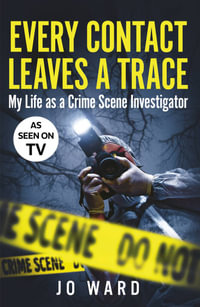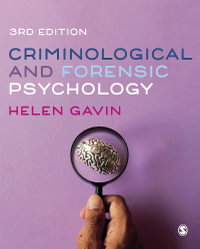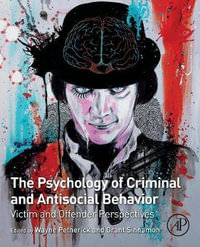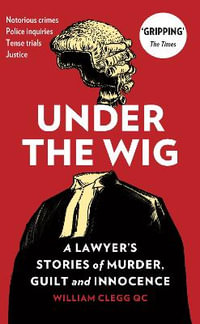This book by Roger W. Shuy, the senior figure in forensic linguistics, is the first to explain in an accessible way the vital role that linguistic evidence and its proper analysis play in criminal investigations.
Shuy provides compelling case studies of how language functions in investigations involving, among others, wired undercover operatives, and the interrogation of suspects. He makes the point that language evidence can be as important as physical evidence, but yet does not enjoy the same degree of scrutiny by investigators, attorneys, and the courts. Beyond this, however, his more controversial thesis is that police frequently misuse or manipulate language, using various powerful controversial strategies, in order to intentionally create an impression of the targets' guilt or even to get them to confess.
This book makes its case by analyzing a dozen criminal cases involving a variety of crimes, such as fraud, bribery, stolen property, murder, and others. About half involve co-operating witnesses who do the tape recording, and the other half undercover police officers. These cases demonstrate how undercover operatives use different conversational strategies, such as overlapping conversation, ambiguity, interruption, refusing to take "no" for an answer, and others to create a negative impression of the targets on later listeners.
Creating Language Crimes provides a fascinating window into a little-known and discussed facet of law enforcement. It will appeal to anyone concerned with language (particularly sociolinguists and discourse analysts), as well as to those involved in law enforcement and criminal cases.
Industry Reviews
"Creating Language Crimes will easily fit into any undergraduate course on discourse analysis, and it will serve as an excellent primer for non-specialists who wish to understand how the study of language and the practice of law enforcement and investigation converge." --American Speech
"Creating Language Crimes is admirably well-written and accessible." --Journal of Pragmatics
"By presenting a number of detailed case analyses, Shuy illustrates vividly and explicitly the nature and function of discourse stratedies for manipulating language in order to create an impression of guilt or even to elicit a false confession. The author provides excerpts from transcripts so that readers can analyze relevant data themselves. Such data will be very helpful for all readers, but especially for professors and students. Overall, the book should
interest defense lawyers and judges as well as linguists and linguistic students -- and also interested citizens. Overall , this book constitutes a significant contribution to the rapidly growing and
expanding field of forensic linguistics. It is definately a must for the library of any serious forensic linguist, and it is a useful tool for getting acquainted with an area many find unfamiliar or intimidating." --Language in Society
"Interesting and very readable." --British Journal of Criminology
"This book is an excellent, beautifully written example of forensic linguistic analysis. The text is accessible to all levels of researcher, providing background information for those who may not be formally trained in linguistics. It is detailed enough, however, for professional linguists to also gain an extraordinary amount of information into this new and growing field of Applied Discourse Analysis. ... This is a new, expanding and important field of
linguistics. Shuy's contributions to the area in both this book and his previous contribution, Language Crimes, 1993, are immeasurable. As new investigators come into the field, it is guaranteed that these
early works will become classic reference texts."--Linguist List 16.3453
"Creating Language Crimes is an unusual, intriguing, and important book written by a pioneer in the area of language and the law...[it] reads smoothly and contains a wealth of real-life experiences and details; it is clear that Shuy speaks from great personal experience and authority on this topic."--Heidi E. Hamilton, Associate Professor in the Department of Linguistics, Georgetown University
"A significant contribution to the rapidly growing field of forensic linguistics. It is also highly accessible to students who have demonstrated increasing interest in the field in recent years. The author's qualifications are superb. Shuy has, during his career, conducted analysis in hundreds of legal cases and testified in many of those cases. He is highly sought after as a consultant, an expert witness, as well as a speaker."--Bethany K. Dumas, Professor of
English, University of Tennessee
"Creating Language Crimes will easily fit into any undergraduate course on discourse analysis, and it will serve as an excellent primer for non-specialists who wish to understand how the study of language and the practice of law enforcement and investigation converge." --American Speech
"Creating Language Crimes is admirably well-written and accessible." --Journal of Pragmatics
"By presenting a number of detailed case analyses, Shuy illustrates vividly and explicitly the nature and function of discourse stratedies for manipulating language in order to create an impression of guilt or even to elicit a false confession. The author provides excerpts from transcripts so that readers can analyze relevant data themselves. Such data will be very helpful for all readers, but especially for professors and students. Overall, the book should
interest defense lawyers and judges as well as linguists and linguistic students -- and also interested citizens. Overall , this book constitutes a significant contribution to the rapidly growing and
expanding field of forensic linguistics. It is definately a must for the library of any serious forensic linguist, and it is a useful tool for getting acquainted with an area many find unfamiliar or intimidating." --Language in Society
"Interesting and very readable." --British Journal of Criminology
"This book is an excellent, beautifully written example of forensic linguistic analysis. The text is accessible to all levels of researcher, providing background information for those who may not be formally trained in linguistics. It is detailed enough, however, for professional linguists to also gain an extraordinary amount of information into this new and growing field of Applied Discourse Analysis. ... This is a new, expanding and important field of
linguistics. Shuy's contributions to the area in both this book and his previous contribution, Language Crimes, 1993, are immeasurable. As new investigators come into the field, it is guaranteed that these
early works will become classic reference texts."--Linguist List 16.3453
"Creating Language Crimes is an unusual, intriguing, and important book written by a pioneer in the area of language and the law...[it] reads smoothly and contains a wealth of real-life experiences and details; it is clear that Shuy speaks from great personal experience and authority on this topic."--Heidi E. Hamilton, Department of Linguistics, Georgetown University
"A significant contribution to the rapidly growing field of forensic linguistics. It is also highly accessible to students who have demonstrated increasing interest in the field in recent years. The author's qualifications are superb. Shuy has, during his career, conducted analysis in hundreds of legal cases and testified in many of those cases. He is highly sought after as a consultant, an expert witness, as well as a speaker."--Bethany K. Dumas, Professor of
English, University of Tennessee


